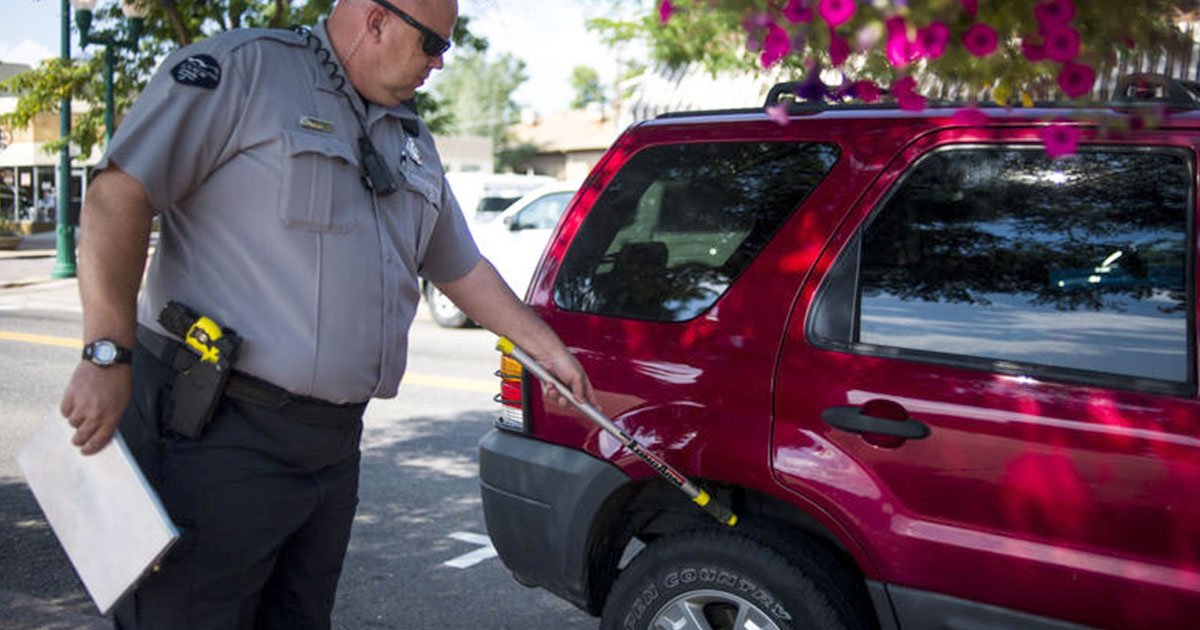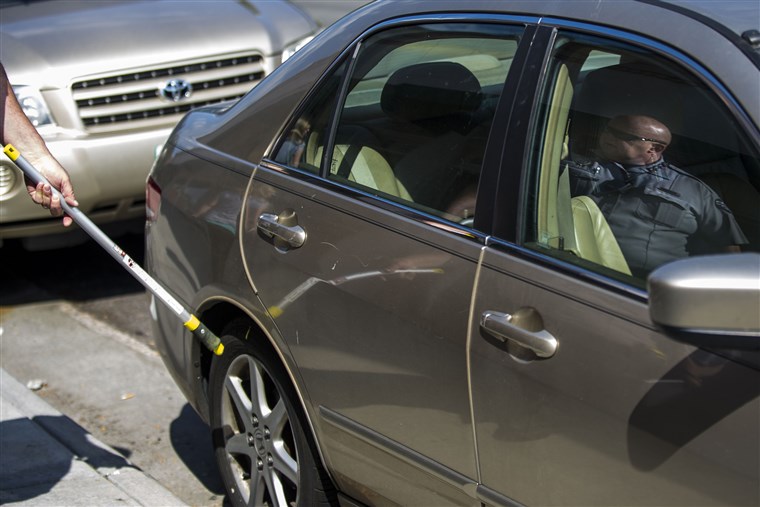Watch the video to find more about why ‘chalking of vehicle tires’ is unconstitutional.
Video credit: RT America
A government advances court decided Monday that “chalking” of vehicle tires, a typical practice by leaving authorization officers over the US — violates the Constitution.
A three-judge board of the sixth US Circuit Court of Appeals decided that putting a chalk mark on tires so as to follow to what extent a vehicle has been left was an infringement of the Fourth Amendment, which ensures individuals against irrational pursuits of their property.
Chalking is normally done in spots where there are no stopping meters to uphold time limits. In such territories, a leaving officer will check a vehicle tire with chalk and after that arrival to the vehicle after the leaving time limit has passed. On the off chance that the chalk marks are still on the tire — a sign that the vehicle has not moved — the officer will issue a reference.
The Sixth Circuit Court board issued its assessment as to a 2017 case in which Alison Taylor, a Michigan lady who got 15 leaving references in three years, sued the city of Saginaw and its leaving authorization officer for disregarding her Fourth Amendment by chalking her vehicle tires without her assent or legitimate court order.
Taylor’s claim was rejected by a Michigan region court, which decided that the act of chalking added up to a “reasonable” pursuit of Taylor’s vehicle since individuals had a lesser desire for security with autos and in light of the fact that the inquiry was to ensure the public’s safety under the “network overseer exemption.”
In any case, the three-judge government bids court board turned around the region’s court choice, finding that the chalking of Taylor’s vehicle tires added up to a preposterous inquiry of the vehicle under the Fourth Amendment and one that would require a court order. The Sixth Circuit Court covers the conditions of Michigan, Ohio, Kentucky, and Tennessee.
Fascinating CA6 opinion today holding that chalking a tire for parking enforcement — to see if the car had been there a while in violation of parking rules — violates the 4th Amendment. Not sure where I come out on it, but fun issue. Here's a thread. https://t.co/2MtCtAb9e6 #N pic.twitter.com/GOGjL0RUGk
ADVERTISEMENT — Orin Kerr (@OrinKerr) April 22, 2019
The board’s feeling, composed by Judge Bernice Bouie Donald, states that officers can look through a vehicle without a warrant just on the off chance that they have reasonable justification to trust that the vehicle contains a proof of wrongdoing — which was not the situation with Taylor’s vehicle.
Donald likewise composed that Taylor’s legally left vehicle did not represent any hazard to public safety, thus the city was not going about as a “community caretaker” by chalking her vehicle. The city chalked vehicles to raise income, not to secure the public safety, Donald composed.
The board likewise established that while the city was qualified for control organized stopping, it needed to do as such inside sacred breaking points.
“The city does not demonstrate, in law or logic, that the need to deter drivers from exceeding the time permitted for parking — before they have even done so — is sufficient to justify a warrant-less search under the community caretaker rationale,” Donald wrote. “Because we chalk this practice up to a regulatory exercise, rather than a community-caretaking function, we REVERSE.”
Second, if you were chalked and that led to a ticket, I'm not sure you have a suppression remedy: Parking is normally a civil infraction, and the exclusionary rule may not apply under United States v. Janis, 428 U.S. 433 (1976). https://t.co/ea2xUnCgk9 pic.twitter.com/PhwLGNrv38
ADVERTISEMENT — Orin Kerr (@OrinKerr) April 22, 2019
The Sixth Circuit court’s decision sends Taylor’s case back to the US District Court in Bay City, Michigan.
The decision might be the first of its sort. Taylor’s legal adviser, Philip Ellison, told the Washington Post that he could locate no other chalking points of reference.
Taylor, a companion of Ellison’s, connected with him after she read his 2016 Facebook post in which he raged about his law accomplice getting ticketed while sitting in his chalked vehicle, the Post revealed.
“We made a federal case out of tire-chalking,” Ellison told the Post.
Ellison did not promptly react to BuzzFeed News’ solicitation for input.
Orin Kerr, a law educator at the University of Southern California, tweeted this was the principal such case he had known about.
Kerr recommended that leaving masters could abstain from damaging the Fourth Amendment by basically snapping a picture of the vehicle or the nearby of the tire to stamp the vehicle’s arrangement, rather than chalking it.
Recommended Video!
“13 Simple DIY Car Cleaning Hacks To Keep the Inside and Outside Of Your Car Spotless”



